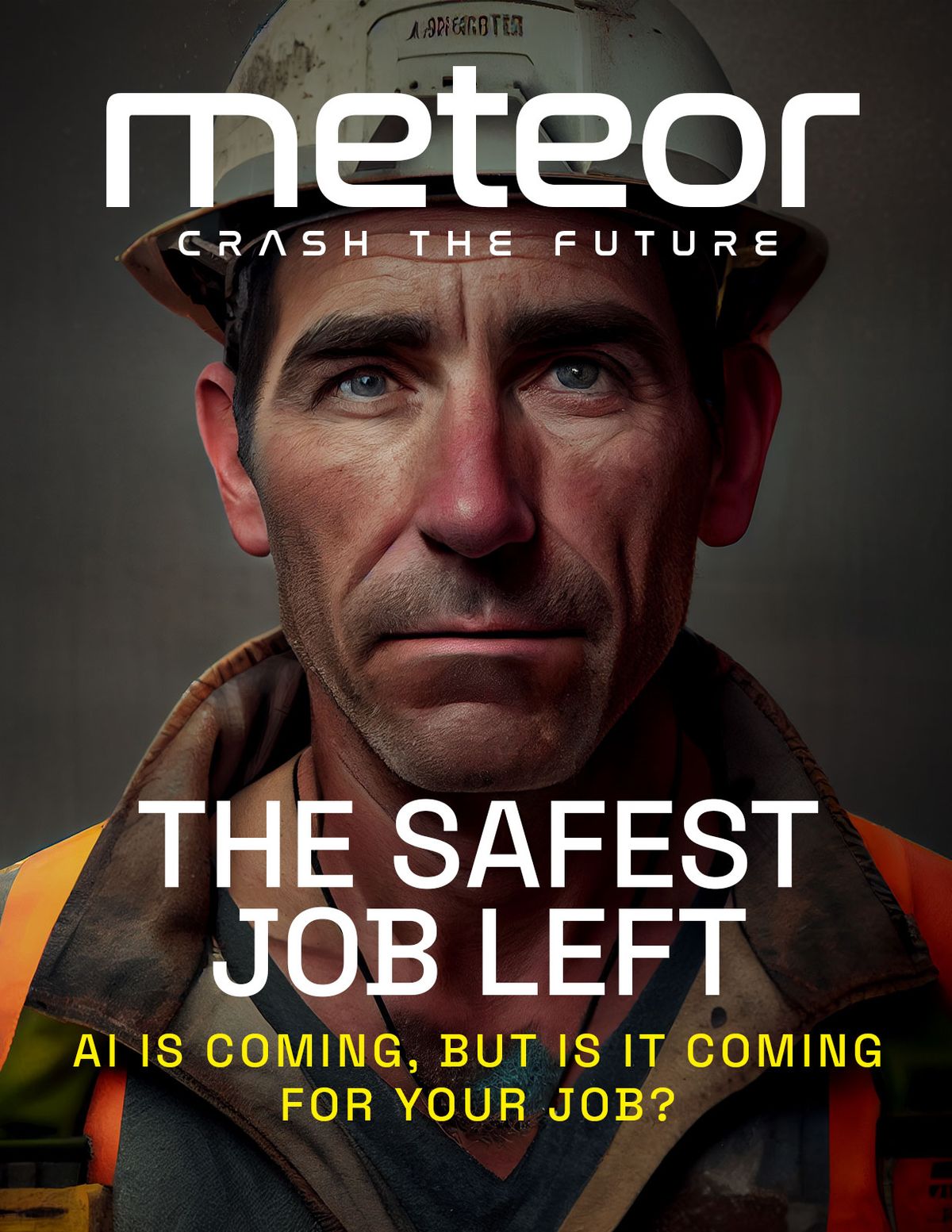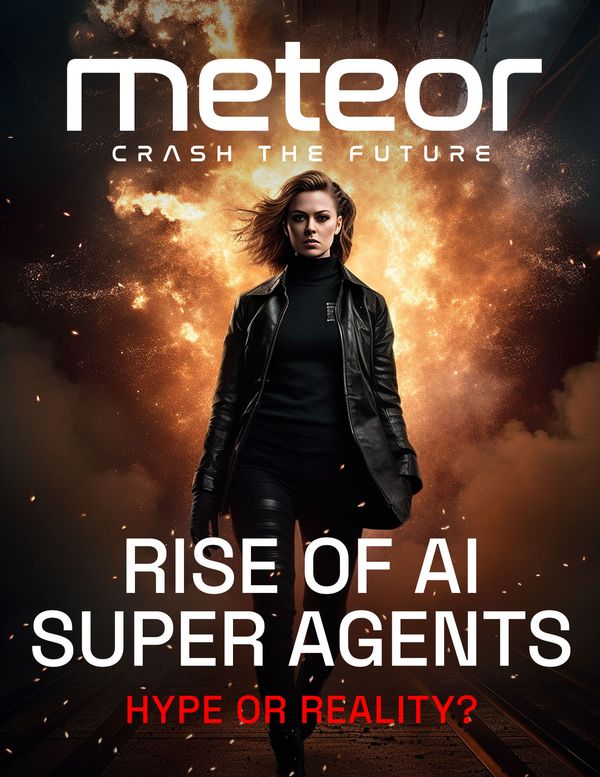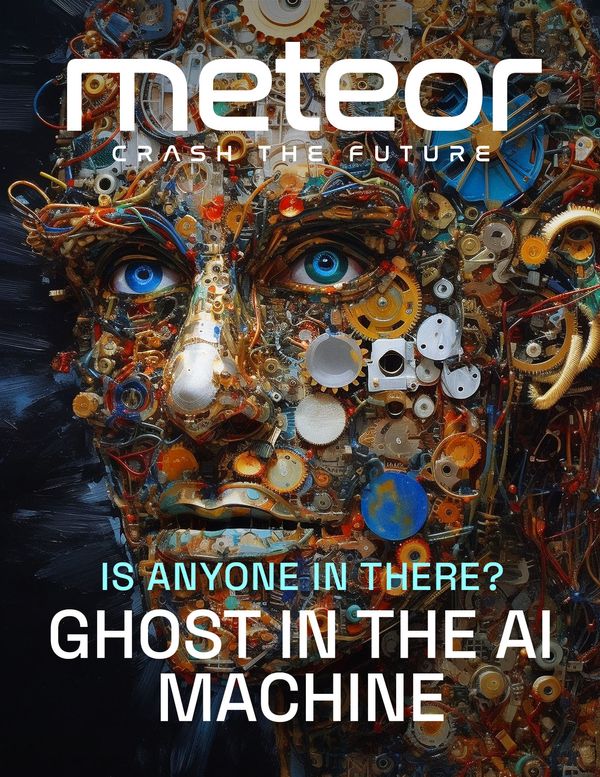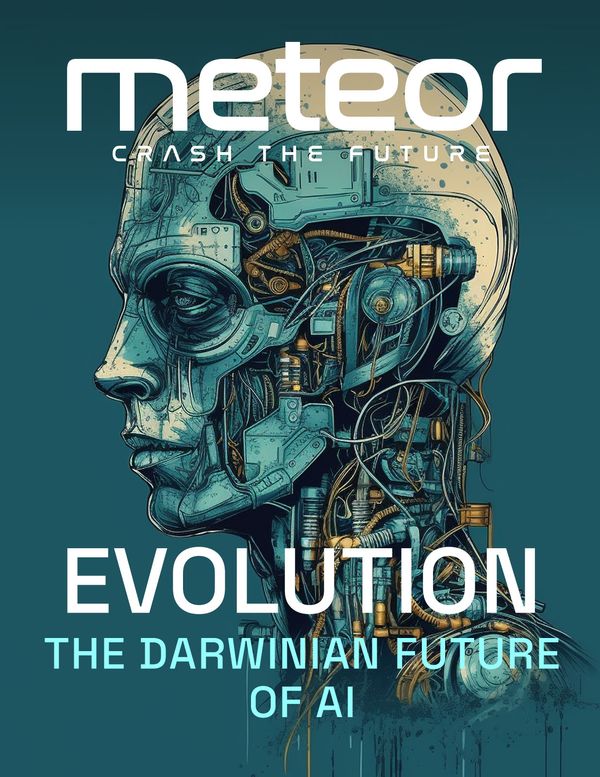AI is coming, but is it coming for your job?
By Evan Hansen
It’s a dismal science, with very little real world data to go on, but the debate behind it will only grow louder now that a wave of disruptive new tools like OpenAI's ChatGPT have burst on the scene.
Right on cue, a new paper predicting the impact of large language models (LLMs) on employment has just been published, and it concludes telemarketers and a variety of post-secondary school teachers may face the most "exposure."
That doesn't exactly mean what you might think.
The authors say the term is agnostic, meaning it "could involve substitution or augmentation depending on various factors associated with the occupation itself." In other words, brace for change, but don't write off the school teachers just yet.
The lead author is Ed Felten, a well-known computer science researcher at Princeton who served as a tech advisor in the Obama Administration, among other things. He led a team back in 2018 that created a methodology called the AI Occupational Exposure (AIOE) measure to predict which jobs are most at risk from AI.
Following other recent efforts to map this impact, AIOE attempts to link advancement in different categories of AI to specific types of abilities or skills. It was just adapted to account for the recent advancement of language models, like GPT-3.5, which powers ChatGPT, causing a substantial re-ranking of the top affected professions. (We'd love to see a ranking based on new generative imaging AI like MidJourney and Stable Diffusion.)
Predictions of AI’s impact on employment go back years, including one apocalyptic vision that’s the most widely referenced study in the field by a mile with almost 12,000 citations in all (most academic papers barely get one).
In 2013, Oxford’s Carl Frey and Michael Osborne pioneered the abilities-mapping method described above and declared 47 percent of US jobs were "at risk" from "computerization." While their method is now widely adopted as among the most rigorous approaches to measuring this very slippery fish, more recent research papers have pushed back on their conclusions, finding little correlation overall, and possibly indications of wage increases in the local labor markets where AI is prevalent.
Looking at the updated AIOE list, it seems the revealed "exposure" to LLMs may not be lethal to all. One can easily imagine teachers using ChatGPT in a classroom. It's harder to imagine a class run completely by ChatGPT with no teacher present, or available.
In an unrelated post, VC Marc Andreesen weighed in with a somewhat more pessimistic view of the impact of AI on work.
Don't fear AI taking your job, he argues. The powers that be will just make it illegal.
Andreesen highlighted a chart showing price changes, adjusted for inflation, across a dozen major sectors of the economy.
"As you can see, we actually live in two different economies," he wrote. "The lines in blue are the sectors where technological innovation is allowed to push down prices while increasing quality. The lines in red are the sectors where technological innovation is not permitted to push down prices."
Ergo, highly regulated industries will simply reject AI, based on policy, just as they have eschewed disruptive technologies in the past. As a result, regulatory moats may wind up protecting the very industries that could benefit from AI the most, and keep humans busy at mundane tasks while denying better outcomes that could be improved by machines.
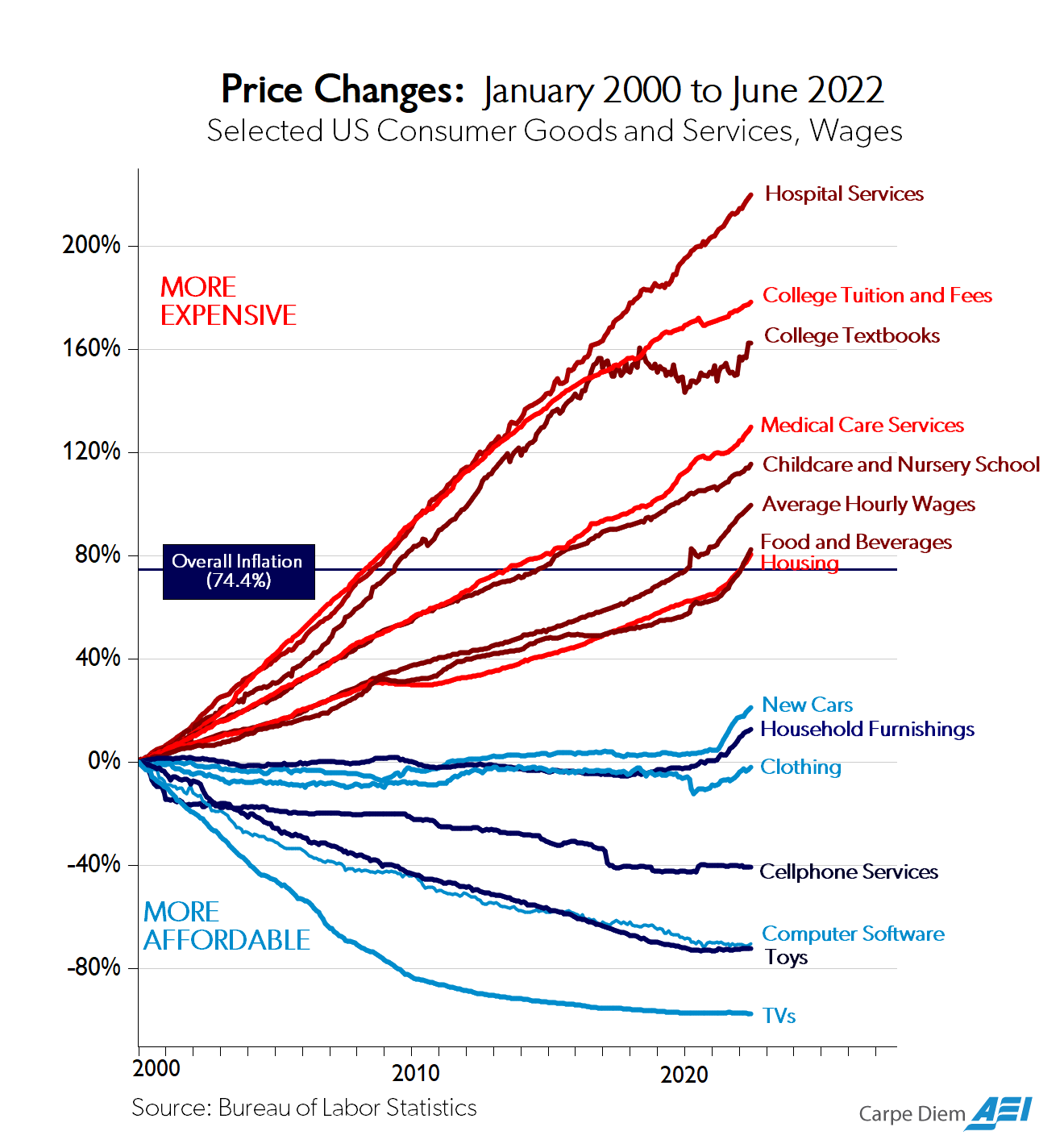
It's not a far-fetched notion. The American Bar Association has already threatened a lawyer with disbarment for considering sending a client to court to fight a parking ticket with an earpiece connected to ChatGPT to coach him through it. (The law firm managing the case backed down after it was warned.)
Kill all the lawyers? Not so fast.
How AI Can Peek Inside Your Brain
Researchers have paired images shown to test subjects with brain scans taken at the same moment on a magnetic resonance imaging machine (MRI) to train an AI model to derive images from MRI scans alone.
tl;dr: it's now possible to look inside someone's mind.
From the abstract: "Here, we propose a new method based on a diffusion model (DM) to reconstruct images from human brain activity obtained via functional magnetic resonance imaging (fMRI)."
Update: Yuga Labs Scores With Bitcoin NFT Drop

As we reported last week, Yuga Labs, the company behind Bored Ape Yacht Club, ran an auction on Monday for its first NFT mint on Bitcoin using the Ordinals protocol (we've been on this story since the start, stay with us!).
Dubbed the TwelveFold collection, the project sold 288 NFTs for more than $16M, but got some blowback over the process. Ordinals does not yet have a marketplace, so Yuga Labs hacked the auction together by having bidders send them tokens, which they held in escrow pending the final results. Losers got their money back, while winners collected their prize.
Some people were not happy with the set up, suggesting scammers could easily rig fake auctions on a similar premise, so not a great a example to set from an established market leader. On the other hand, it should be a call to action to Bitcoin devs who want to see NFTs flourish on the platform – problems are just solutions waiting to happen.
Other AI News


/cloudfront-us-east-2.images.arcpublishing.com/reuters/NRRGBZXFFVKKXAE46GWD5M2EHA.jpg)
Ten Cool AI Tools to Super Power Your Life and Business
Eightify: YouTube Video Summaries with Eightify AI ChatGPT let you jump straight to the bits that matter.
Durable: AI Website Builder and service business software provider promises to create a Website in 30 seconds.
Excelformulabot: Provide plain text instructions and transform them into Excel formulas in seconds with the help of AI.
Stenography.dev: Document your code automatically.
Rationale: Make better decisions with AI. Enter a decision and select an analysis technique to generate a high-quality analysis report in 10 seconds.
Simplified: AI design and creation multi-tool offering assists with graphic design, video editing, copy writing and social media management from one place.
Fireflies.ai: Helps your team record, transcribe, search, and analyze voice conversations to create instant meeting notes and more.
Repurpose.io: Reposting content on social media, made easy. Automatically repurpose YouTube, TikTok, Lives, Podcasts, and Zoom calls.
Uizard: Generate multi screen UI mockups with text inputs.
Gallileo.ai: Generate delightful UI designs from a text prompt in an instant.
Thanks for reading. How did we do today? We're trying different formats to make sure we become your essential read for understanding the new technologies transforming the creative arts and culture, from Web3 to AI and beyond. If you got this far, give us two more minutes of your time.

